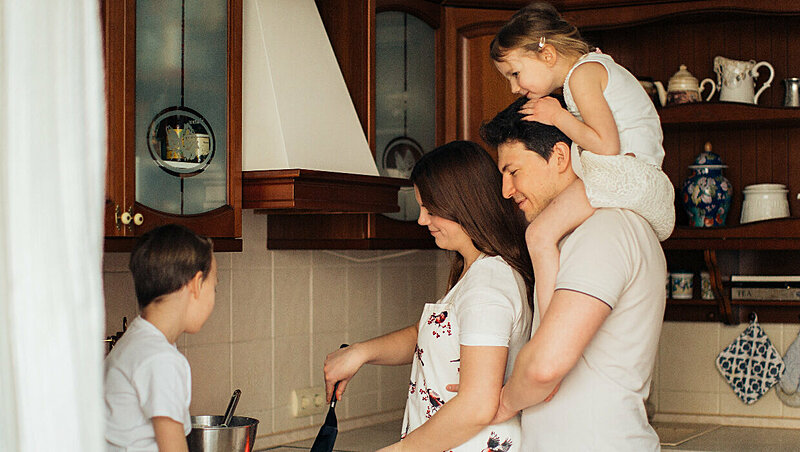A toddler under the age of four may experience up to nine tantrums in a week, and that is normal. These may include five to ten-minute-long bursts of crying, kicking, stomping, hitting, and shoving. Typically, by kindergarten, children outgrow this tendency. Professional assistance could be necessary for kids whose tantrums escalate as they get older and start to become inappropriate for their developmental stage. The most frequent cause for referring children for mental health treatment is anger management concerns.
Children may suffer long-term consequences if their parents carry their anger home with them. Research has demonstrated that a child's academic performance, emotional state, mental well-being, and physical health may suffer over time if they grow up in a home where there are frequent outbursts of anger between their parents. That said, we’ll discuss today the effect of parents with anger management and the effect they can have on their children, so keep reading.
Running out of Time? These Are 30 Cheap Valentine's Gift Ideas for Him

What can cause anger issues for children?
A child's issues with anger, impatience, and aggression can be attributed to a variety of circumstances. Frustration when a child doesn't receive what they want or gets asked to do something they don't feel like doing is a common trigger. Anger management problems in kids are frequently accompanied by other mental health disorders, such as Tourette's syndrome, ADHD, autism, and obsessive-compulsive disorder.
How to differentiate between healthy anger and problematic anger issues?
Many young children—and perhaps even older children—do not comprehend that powerful emotions like anger are normal. Most parents may also experience this. Little children frequently find it difficult to control their strong emotions, which might cause them to explode uncontrollably. Pretending that anger doesn't exist can encourage your child to repress or dismiss uncomfortable emotions, even though anger is a completely natural emotion. Instead, this could have a detrimental impact on your child's capacity to communicate their emotions, which could subsequently cause emotional development delays or issues with controlling their rage.
However, when your kid is displaying relationship difficulties, family life disruption, aggression, immature behavior, or frequent frustration, there could be a problem that needs to be addressed.
Feel Good About Yourself: Self-Esteem Strategies For Men And Women

How can parents contribute to anger issues for their children?
Children witnessing their parents getting angry with them or with one another can have a negative impact on them, particularly if it is a frequent occurrence. Children tend to place the blame on themselves. This conduct is linked to high-stress feelings, which can impact a child's brain development and raise the risk of mental illness in later life. The act of a parent shouting at their child might lead to feelings of worthlessness. A kid cannot feel safe, at ease, or protected in a high-stress home setting caused by verbal or physical abuse.
11 Perfect Ways to Spend The Winter Break As A Family
This situation usually results in the child reacting angrily—behaving rudely, aggressively, and hurtfully—to a parent. The repeated motions will cause unintended reinforcement of bad behavior that makes it appear as though no one is at fault. Kids get sick, withdrawn, and have trouble falling asleep. Studies show that when parental rage turns into physical aggression, such as slapping or shaking a kid, the effects can linger in the child's later years. thereby resulting in:
- Aggression
- Antisocial actions
- Additional issues related to mental health
- Low self esteem
- Failure to establish relationships

How to deal with child anger issues?
Establish a loving family atmosphere
Parents ought to concentrate on helping kids pinpoint the reason behind their annoyance, looking into potential fixes, and weighing the pros and cons of various courses of action. As parents, we need to carefully balance giving our kids the freedom to discover their social connections while also making sure they are constantly surrounded by positive influences when it comes to outside influences. A stable home environment, the promotion of wholesome friendships, the use of positive reinforcement to boost self-esteem, and continued involvement in both community and school life can all help to mold and direct our children's social relationships.
Encourage and demonstrate improved impulse control skills
Increase awareness of mental well-being and incorporate candid conversations into your family's daily activities. Assist kids in recognizing and labeling their feelings; this is the first step toward helping them learn impulse control. Try introducing age-appropriate mindfulness techniques, such as deep breathing or present-moment awareness, to your child when they are misbehaving. You can take it a step further and enroll your child in a yoga class or guided meditation.
Get professional help
There are several areas to look for assistance for both you and your child. Seeking specialized assistance can be a smart place to start if you have attempted to address their behavior at home and attempt to understand where it is coming from. For example, parents should speak with teachers or school psychologists to determine the root of their kid's annoyance if their child is acting irritable because of stress related to school or friendships. They could also be able to offer substitutes so your youngster can better control their emotions.
If you are completely at a loss for where to start, consulting a child psychologist can help you determine what triggers your child's negative behavior and what steps you should take next to support them.
Fighting with your spouse or showcasing anger and aggression in front of your child can deeply affect their life, causing more problems than you can imagine. Helping your child starts with changing your behavior. As parents, you should always demonstrate positive behavior in front of your kids.















